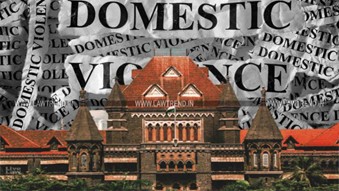SC Empowers HCs to Quash Domestic Violence Cases
SC Empowers HCs to Quash Domestic Violence Cases
Why in the News?
In a significant development for tamil news and legal circles, the Supreme Court India ruled that Indian High Courts can quash criminal proceedings under Section 12(1) of the Domestic Violence Act, 2005, using Section 482 CrPC, recognizing the serious consequences of criminal action on individual liberty and justice. This latest news Supreme Court decision has been widely reported on live law Supreme Court platforms and is part of high court today news.
Highlights of the Supreme Court’s Verdict on DV Act Cases:
- A SC bench of Justices Abhay S. Oka and Ujjal Bhuyan allowed High Courts to use Section 482 CrPC to quash proceedings under Section 12(1) of the Domestic Violence Act, 2005.
- Recognized that while the DV Act is primarily civil in nature, it has criminal implications that can impact a person’s liberty.
- Cautioned that this power should be used with “caution and circumspection” to prevent gross illegality or injustice.
-
This decision aligns with recent madras high court latest notification on handling domestic violence cases.
Case Background and Legal Context
- The case involved a family from Dewas, Madhya Pradesh, booked under the DV Act based on a 2022 complaint by the daughter-in-law.
- The MP High Court (Indore Bench) earlier refused to quash the case citing lack of jurisdiction under Section 482 CrPC.
- The SC set aside that order and asked the High Court to reconsider the case afresh, demonstrating the evolving nature of indian courtroom proceedings.
-
This ruling may influence future decisions by the chief justice of madras high court and other high courts across India.
Importance of Judicial Learning and Precedent
- Justice Oka admitted he had earlier ruled against the use of Section 482 CrPC for DV Act cases while in Bombay High Court (2016).
- Noted the learning nature of judiciary, stressing that even judges must be open to correcting past errors through due process.
-
This self-reflection sets an example for new judges of madras high court and other judicial appointees.
Domestic Violence Act, 2005 – Key Highlights : |
– Objective: Protect women from domestic violence in physical, emotional, sexual, verbal, and economic forms.
|




